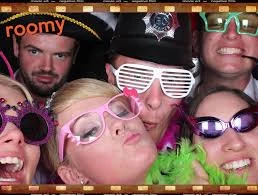- 5 Stollard st, Catherine Hill Bay, NSW 2281
- 10-20 km from Fennell Bay
Photography Classes & Lessons for Kids - Fennell Bay (2283)
No exact matches found within 5km.
Other related businesses in and around Fennell Bay (within 20km)
The Booth Fairy is one of the top Photo booth hire companies located in Sydney. Our photo booths in Sydney Capture your moments with lots of fun. We are the most stylish wedding photo booth hire company in Sydney. Capture your wedding with stunning photography from our wedding photographers in Sydney. Hire our gorgeous party photo booths Sydney for your party can bind your guests longer than your imagination. We are also offer photo booth hire Services across New castle and central coast region with... Read more
- 139 Wilkinson Ave, Birmingham Gardens, NSW 2287
- 10-20 km from Fennell Bay


